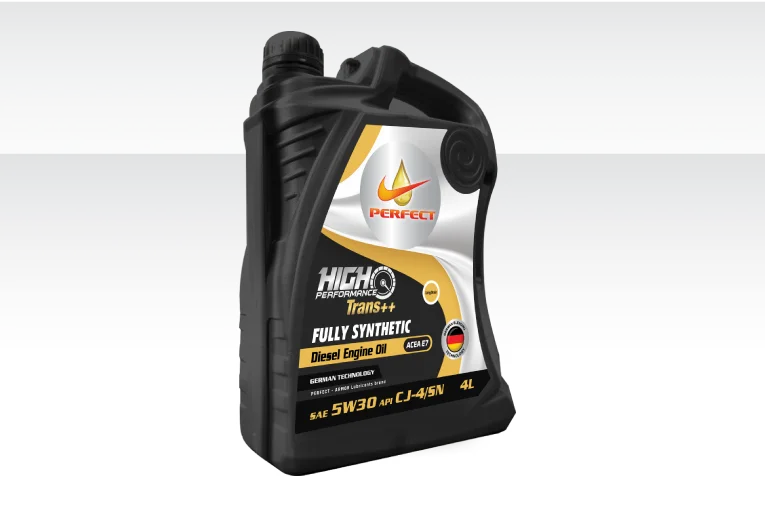TL;DR:
– Industrial oil types include mineral, synthetic, and biodegradable options for efficient lubrication.
– Factors like operating temperatures, equipment compatibility, and environmental impact influence oil selection.
– Benefits of industrial oil use encompass prolonged machinery lifespan, reduced friction, and enhanced equipment performance.
– Common applications span the automotive, manufacturing, and construction/mining sectors.
– Proper maintenance entails regular inspections, correct storage, and appropriate disposal methods.
Introduction
When it comes to maximizing efficiency and performance in industrial operations, the choice of industrial oil types plays a pivotal role. As a seasoned professional in the realm of Manufacturing and Supplying Lubricants, I understand the importance of selecting the right lubricants for optimal machinery function. In this article, titled ‘Industrial Oil Types: 5 Essential Solutions for Efficient Lubrication’, we delve into the key industrial oil types that can revolutionize lubrication practices in various industrial settings. Join me as we explore the critical role these lubricants play in enhancing equipment lifespan, reducing friction, and ultimately boosting productivity. Let’s unlock the secrets to seamless machinery operation through the power of tailored industrial oil solutions.
Different Types of Industrial Oil
Have you ever wondered about the diverse range of industrial oil types available in the market? Understanding the variations in industrial oils can greatly impact the efficiency and longevity of your machinery. Let’s delve into the three main categories of industrial oil to shed light on their unique properties and applications.
Mineral Oil Lubricants
Mineral oil lubricants, derived from petroleum, are one of the most commonly used industrial oils. Known for their affordability and wide availability, mineral oil lubricants provide basic protection against friction and wear. They are suitable for standard operating conditions and offer decent performance in a variety of industrial settings.
Synthetic Oil Lubricants
Synthetic oil lubricants, on the other hand, are chemically engineered to offer superior performance compared to mineral oils. With improved thermal stability and oxidation resistance, synthetic oils are ideal for high-temperature operations and critical machinery. While they come at a higher price point, the enhanced protection they provide can lead to cost savings in the long run.
Biodegradable Oil Lubricants
In response to environmental concerns, biodegradable oil lubricants have gained popularity due to their eco-friendly composition. These oils are designed to break down naturally, reducing the environmental impact of industrial operations. Biodegradable lubricants are often used in environmentally sensitive areas or where spills pose a risk to ecosystems.
Now that we’ve explored the different types of industrial oil, you can make informed decisions when selecting the right lubricant for your specific applications. Each type has its advantages and limitations, so choosing the appropriate oil can significantly improve the efficiency and reliability of your equipment.
Factors to Consider When Choosing Industrial Oil
When selecting industrial oil for your machinery, several critical factors must be taken into account to ensure optimal performance and longevity. Let’s delve into the key considerations that can guide you in making the right choice based on your specific needs.
Operating Temperatures
The operating temperatures of your equipment play a crucial role in determining the type of industrial oil suitable for use. Different industrial oil types have varying temperature ranges at which they perform optimally. Understanding the temperature conditions your machinery operates in will help you choose the oil that can withstand those conditions and provide effective lubrication.
Equipment Compatibility
Compatibility with your machinery is another essential factor to consider when selecting industrial oil. Not all oils are suitable for every type of equipment, and using an incompatible oil can lead to performance issues or even damage. Ensure you choose an industrial oil that is specifically designed for the equipment you intend to lubricate to maximize efficiency and prevent potential problems.
Environmental Impact
Considering the environmental impact of the industrial oil you choose is increasingly important in today’s eco-conscious world. Opting for biodegradable or environmentally friendly lubricants can help minimize harm to the environment and ensure compliance with environmental regulations. By prioritizing sustainability in your choice of industrial oil, you contribute to a greener future while maintaining the performance of your machinery.
Benefits of Using Industrial Oil
Have you ever wondered how industrial oil can benefit your machinery and equipment? Let’s explore the advantages of incorporating the right type of industrial oil into your operations.
Increased Machinery Lifespan
– Proper lubrication with industrial oil can significantly extend the lifespan of your machinery by reducing friction and wear on critical components.
– Regular maintenance and proper selection of industrial oil can help prevent premature failure and costly repairs.
Reduced Friction and Wear
– Industrial oil creates a protective barrier between moving parts, reducing friction and wear that can lead to equipment breakdown.
– By using the appropriate industrial oil for your specific applications, you can ensure smooth operations and minimize downtime.
Improved Equipment Performance
– The right industrial oil can enhance the overall performance of your machinery, leading to increased efficiency and productivity.
– By optimizing lubrication with industrial oil, you can achieve better control over operating temperatures and reduce energy consumption.
Incorporating industrial oil into your maintenance routine can have a significant impact on the performance and longevity of your equipment. Stay tuned to discover more about the benefits and applications of various industrial oil types.
Common Applications of Industrial Oil Types
Industrial oils are not restricted to one field, they span across various industries, proving their versatility and indispensability. The multiple industrial oil types each offer unique properties suited to different applications. Therefore, understanding its applications is crucial to maximize their benefits correctly.
Automotive Industry
In the automotive industry, industrial oils are widely relied upon for vehicle assembly and maintenance. The engine lubricants help to reduce friction and wear, increasing component life. Hydraulic oils are commonly used in brake systems, where they resist high temperatures and maintain stability. Gear oils protect cogs and other components against corrosion and wear, ensuring smooth operation.
Manufacturing Sector
Industrial oil types also play an instrumental role in the manufacturing sector. Used in diverse machinery such as compressors, turbines, and machinery tools, they aid in improving performance and prolonging machinery lifespan. With the right type of industrial oil, companies achieve higher efficiency and productivity, leading to increased profits.
Construction and Mining Industries
In the demanding environments of construction and mining industries, the extensive use of heavy equipment necessitates the need for superior quality industrial oils. Hydraulic oils are integral to the functioning of excavators, concrete pumps, and loaders, while high-grade engine oils ensure the smooth operation of heavy-duty trucks and earthmovers. By preventing damage and wear, these industrial oils bring about substantial cost savings while reinforcing safety.
How to Properly Maintain Industrial Oil
Proper maintenance of industrial oil is crucial to ensure the optimal performance and longevity of machinery. By following key practices, you can maximize the benefits of using industrial oil and minimize the risk of equipment failure.
Regular Inspections and Analysis
- Schedule routine inspections to check oil levels and quality.
- Conduct oil analysis to monitor contamination and wear levels.
- Regularly replace oil filters to prevent buildup of contaminants.
Correct Storage Practices
- Store industrial oil in a cool, dry place away from sunlight and heat sources.
- Ensure proper labeling of oil containers to prevent mix-ups.
- Use appropriate containers that are clean and sealed to maintain oil quality.
Proper Disposal Methods
- Follow local regulations for the disposal of used industrial oil.
- Avoid mixing different types of oil during disposal to prevent environmental contamination.
- Consider recycling options or working with a certified disposal service for safe oil disposal.
Conclusion:
In the quest for optimal machinery performance, choosing the right industrial oil types is paramount. From hydraulic to gear oils, each solution plays a crucial role in ensuring efficient lubrication and longevity. Understanding the unique characteristics of industrial oil types can lead to enhanced equipment durability and reduced maintenance costs. Embrace the diversity of industrial oil solutions to unlock the full potential of your machinery. Explore our comprehensive resources on industrial oil types to elevate your maintenance practices and achieve peak performance.

